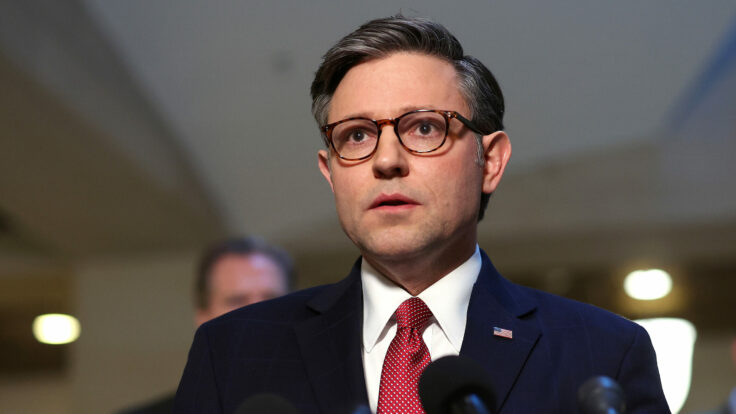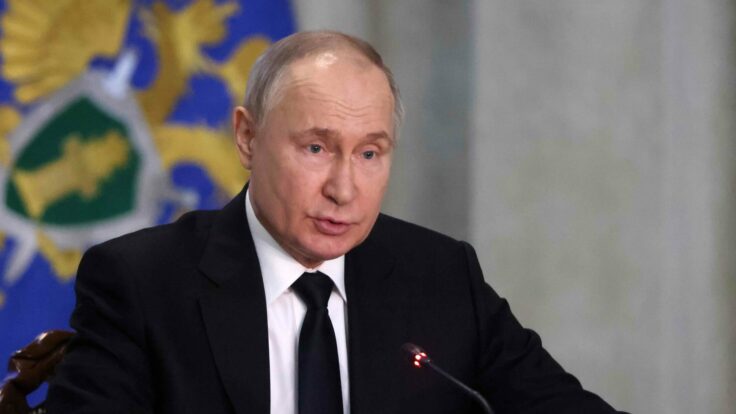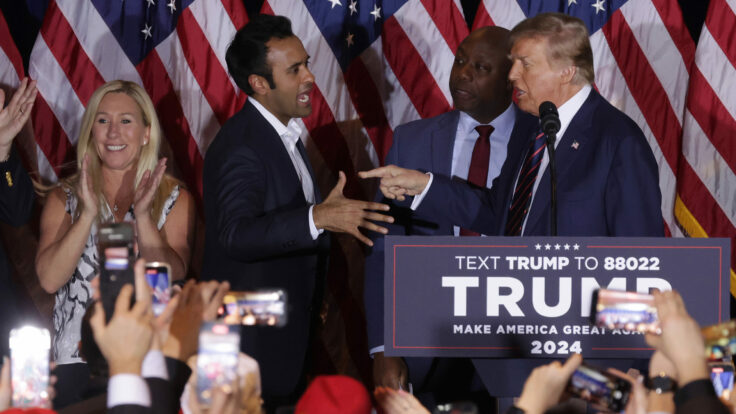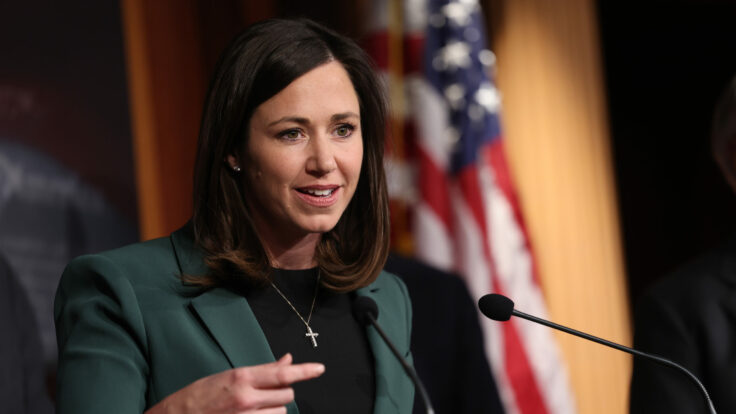Earlier this month, during my trip to the annual CPAC cattle call in Orlando, it was becoming clear that the Republican Party was having a minor, but meaningful, identity crisis over Russia’s war in Ukraine. For more than four years, before and during Donald Trump’s presidency, Russia presented itself to the G.O.P. as an unlikely political ally, and the G.O.P. occasionally embraced Russia in return. Now, of course, things are more complicated.
With Vladimir Putin’s invasion of Europe, the old party of Reagan has largely returned to its Cold War geopolitical posture. Last Wednesday, Republican members of Congress could be seen with tears in their eyes as they exited a Joint Session call with Ukrainian President Volodymyr Zelensky. “It makes me want to throw on my uniform and go help,” said Senator Joni Ernst, a combat veteran who visited Soviet-era Ukraine in 1989. “There’s just a lot more that we can be doing and I think we should be doing.” A recent poll from NPR/Ipsos reflects the same views within the Republican electorate: 60 percent of Republicans view Joe Biden’s response as being “too cautious,” and 49 percent think the U.S. could be “doing more” to support Ukraine, compared to 7 percent who think Biden should deescalate.

















